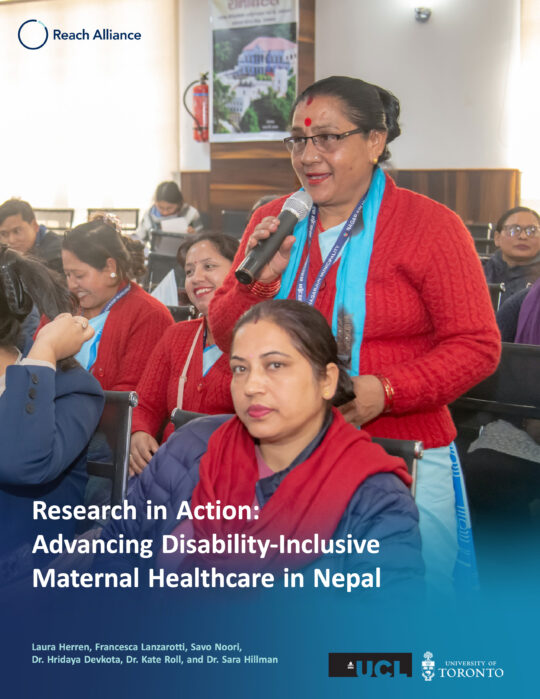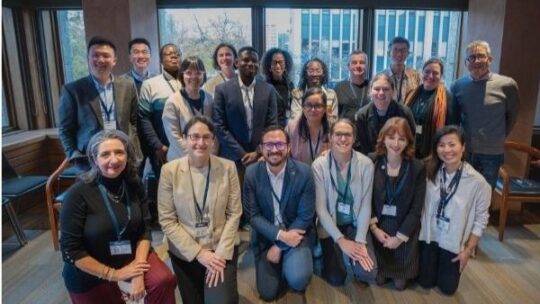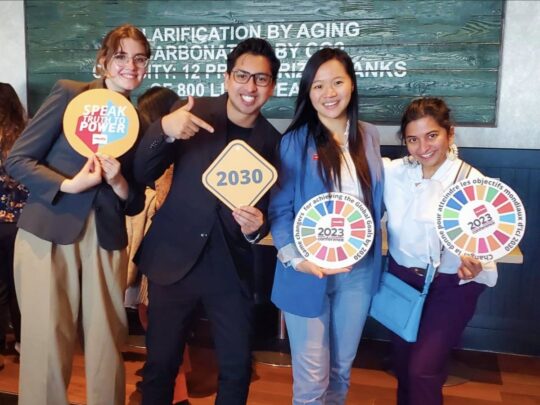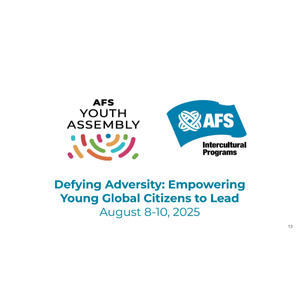News: Latest News
Tackling the Next Decade: Fostering Political and Social Trust for Sustainable Social Change


Author: Aisha Shafaqat
What is required to design and adapt social policy to serve all Canadians amidst converging challenges? This critical question arises as crises and ineffective social policy responses are disproportionately felt by those who are hardest-to-reach – people who are geographically remote, marginalized and administratively invisible. While exploring questions about inclusive economic growth and reaching hard-to-reach populations, The Next Wave conference, Challenges and Opportunities for Social Policy in the Coming Decade, demonstrated that a localized approach to policy development – informing policy from the bottom up – is critical to increasing Canadians’ quality of life amidst precarity in the next decade.
As a Reach Alliance researcher, I investigated Digital Green’s leveraging of information and communications technology and implementation of participatory agricultural extension; a unique approach to promoting women’s economic empowerment among smallholder farms in India. Interestingly, trust became a recurring theme throughout both our Reach Alliance case study findings, as well as the Next Wave conference. It seems that whether we are speaking about large-scale social policy programs or about localized community-based interventions, there is a consensus that trust-building is a crucial component for ensuring success and sustainability of interventions; this is largely due to tendency to discredit or misrepresent first-hand experiences or accounts of those on the receiving end of social interventions.
Keynote speaker and author of What We Owe Each Other: A New Social Contract, Baroness Minouche Shafik, spoke of the need to revisit and redefine the social contract. Highlighting the failure of existing social contracts to deliver on expectations of security and opportunity especially to hard-to-reach populations. She explained, “A new social contract is not about higher taxes, more redistribution, and a bigger welfare state. It is about fundamentally reordering and equalising how opportunity and security are distributed across society.”
Additionally, Canada Research Chair in Racial Inequality in Democratic Societies, Debra Thompson, built on this idea, stating that incremental policy changes are not enough to eliminate systemic racial inequality and a legacy of settler colonialism. Shafik and Thompson both concluded that reacting and addressing future challenges requires bold political action that centres accessible democratic forums and the dismantling of barriers to participation for underserved populations. Both are crucial components to fostering social and political trust among those who have been failed by the current social contract.
These are large-scale issues that we must address in the coming decade; however, as Shafik stated, “sometimes big problems are easier to solve than small ones.” In order to ensure that all Canadians live a life of dignity, time and resources need to be spent on building and maintaining trust. A more bottom-up approach to social policy is needed, for example, including more relational, experientially-based, and participatory approaches. From addressing inequalities embedded within research and data gathering, to conceptualization, delivery and evaluation of social policy programs, it is imperative to involve program recipients in all stages of policy development, implementation and measurement. This engagement can be done through citizen juries, grassroot partnerships and engagement plans. Trust from citizens and communities must be earned; as such, tackling new and enduring social, political, and economic challenges in the next decade involves co-creating a shared future through meaningful participation of hard-to-reach populations.



